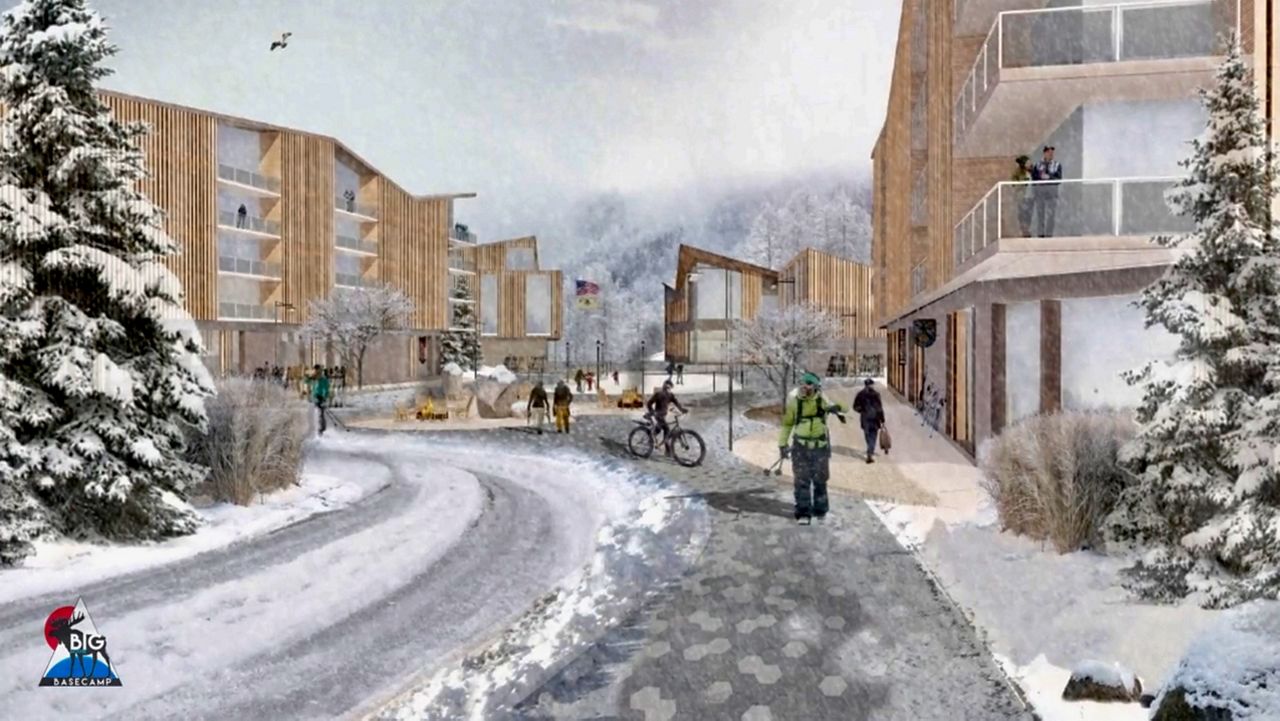Supporters are still confident in a $135 million ski resort project in Greenville, and in the hundreds of jobs it promises, even after two major investors withdrew.
“It’s not all out the window, if you will,” said Steve Levesque, a Greenville resident and former Maine Department of Economic and Community Development commissioner. “It’s there on the shelf, waiting for someone to pull it off.”
The ambitious project includes a 200-slip marina on neighboring Moosehead Lake, construction of a new, 64-room hotel and conference center and the rebuilding of an existing ski lodge.
Developers hoped to begin work last fall.
However, two of the project’s three investors -- Yarmouth-based Treadwell Franklin Infrastructure Capital and Big Lake Development Co., in Rangely -- announced Nov. 16 that “our plans have been halted.”
The investors cited ongoing legal issues surrounding the property, along with inflation and changes in the bond market, as factors.
Treadwell Franklin President Stephen Jones and Big Lake Managing Partner Perry Williams said supporters should not shelve the project.
“It is not beyond the realm of possibility that a smaller project can emerge, or another development team could step forward with a renewed vision for the permitted project,” Jones and Williams wrote in their letter to Eastern Maine Development Corporation, a nonprofit, regional economic development group that loaned the project $385,000.
RESORT HAS TUMULTUOUS HISTORY
The resort sits at the base of Big Moose Mountain, less than three miles from Moosehead Lake.
Its history dates back nearly 50 years. The state of Maine built it in the 1970s and ran it until 1986 to boost economic development in the area. Ownership has since changed twice, and the resort fell into disuse and disrepair.
Current owner James Confalone of New Hampshire is fighting a lawsuit from the Maine attorney general’s office from 2016. The suit alleges that Confalone and others allowed the resort to decay and conducted illegal timber harvesting on the property.
Earlier this year, a Superior Court justice ordered Confalone to pay $4.5 million in damages, according to the Bangor Daily News.
Danna Hayes, special assistant to the attorney general, told the newspaper that as of last month, Confalone was appealing the decision.
Hayes declined comment to Spectrum News this week.
Eastern Maine Development Corporation President and CEO Lee Umphrey said developers expected the lawsuit to be resolved by now, paving the way for new owners to purchase the property and begin work.
Lingering economic impacts of the pandemic, Umphrey said, didn’t help.
“It was kind of a confluence of events that slowed down the project,” he said.
Umphrey, however, noted that a lot of work and money has already gone into the project, namely $135 million in bond financing approved by the Finance Authority of Maine and a state-issued two-year redevelopment permit that gives supporters time to find other investors.
YEAR-ROUND BENEFITS TO GREENVILLE AREA
“The area is ripe for this kind of development, and the community could use a boost,” Umphrey said.
Levesque, who previously supervised the conversion of the former Brunswick Naval Air Station into a Midcoast economic hub, said thousands of tourists visit the Greenville area during summer, but business dries up in the colder months, leaving the region badly in need of year-round employers.
“Like most tourist places in Maine, there’s not a lot going on off-season, and the goal here was to create a four-season resort,” Levesque said.
Levesque said the ski area, in its heyday, inspired other businesses to stay open year-round. He hopes redeveloping the property can bring that off-season vibe back.
“In the old days, when the ski resort was really running, it was a fairly significant venture," Levesque said. "You had more restaurants in downtown, you had more activities in addition to the lodge and hotel operating.”
Umphrey said he remains optimistic, despite the delays, that the project will attract other backers.
“It’s in the seventh inning of the process, so we need someone to come in and finish this,” Umphrey said.
Levesque said he shared Umphrey’s optimism.
The project alone could bring as many as 400 new year-round jobs, and spur local employment growth.
Levesque said he is confident that the potential value will attract new investors.
“Once the lawsuit gets resolved and the market turns around a little bit here, I think there’s going to be renewed interest,” Levesque said.



